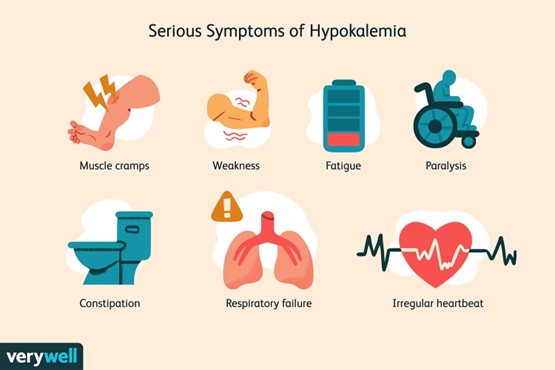A nurse is caring for a client who is near death. Which of the following actions should the nurse take?
Administer scheduled pain medications
Provide oral care every 6 hours.
c) Administer liquids using a syringe.
Whisper when talking to family members.
The Correct Answer is A
The nurse should administer scheduled pain medications to a client who is near death. This is an important nursing intervention to ensure that the client is comfortable and free from pain.
b) Providing oral care every 6 hours is important, but it may not be the highest priority for a client who is near death.
c) Administering liquids using a syringe may not be necessary or appropriate for a client who is near death.
d) Whispering when talking to family members is not necessary. The nurse should communicate openly and honestly with the family members.
Nursing Test Bank
Naxlex Comprehensive Predictor Exams
Related Questions
Correct Answer is A
Explanation
The correct technique for using an albuterol MDI involves closing the mouth around the mouthpiece to create a seal. This helps ensure that the medication is delivered directly into the lungs and maximizes its effectiveness. It also helps prevent the medication from escaping and being wasted.
"Exhale immediately after inhaling": This instruction is not accurate. After closing the mouth around the mouthpiece and activating the inhaler to release the medication, the client should inhale slowly and deeply through the mouth, holding their breath for about 10 seconds if possible. Exhaling immediately after inhaling would not allow enough time for the medication to be absorbed effectively.
"Tilt your head forward while inhaling": Tilted head position is not necessary when using an albuterol MDI. The client should hold the inhaler in an upright position, with the mouthpiece directed toward their mouth. This allows for proper delivery of the medication.
"Take three quick breaths while depressing the canister": This instruction is not accurate for using an albuterol MDI. The correct technique involves taking a slow and deep breath in through the mouth, while simultaneously depressing the canister to release the medication. Taking three quick breaths may not allow enough time for adequate medication delivery.
Correct Answer is C
Explanation
A nurse collecting data from a client who reports having diarrhea for the past 3 days should identify that muscle weakness is a symptom of hypokalemia. Hypokalemia is a condition in which the blood potassium level is low and can be caused by excessive fluid loss through diarrhea. Potassium helps regulate muscle contractions, so when blood potassium levels are low, muscles may produce weaker contractions which result in muscle weakness.
The other options are not typical symptoms of hypokalemia.
a) Pitting edema is not a typical symptom of hypokalemia.
b) Diplopia is not a typical symptom of hypokalemia.
d) Hyperactive bowel sounds are not a typical symptom of hypokalemia.

Whether you are a student looking to ace your exams or a practicing nurse seeking to enhance your expertise , our nursing education contents will empower you with the confidence and competence to make a difference in the lives of patients and become a respected leader in the healthcare field.
Visit Naxlex, invest in your future and unlock endless possibilities with our unparalleled nursing education contents today
Report Wrong Answer on the Current Question
Do you disagree with the answer? If yes, what is your expected answer? Explain.
Kindly be descriptive with the issue you are facing.
